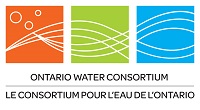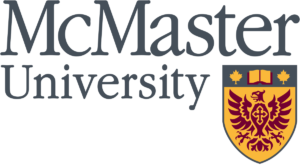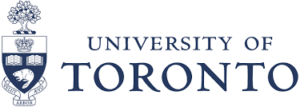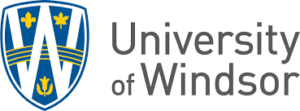The Lambton Water Centre as part of Lambton College’s Research & Innovation department is a multi-disciplinary centre established in 2013. Our focus is on supporting the improvement, development and commercialization of water and wastewater treatment technologies, systems, products and services for both municipal and industrial applications. The Centre strives to be a leader in addressing and solving current global water challenges through excellence in applied research, innovation and education. The Environmental Technician – Water & Wastewater Systems Operations is a Lambton College program that aims to educate and train highly qualified professionals to serve emerging water & waste water industries in our region and around the world. Lambton College was ranked as #1 in Ontario and #2 in Canada for Research in 2020, in addition to maintaining a ranking within the top 3 Colleges for Research for five straight years.
McMaster University has a diverse and multidisciplinary group of researchers working in water-related science, policy, and practice to deliver local and global impacts. All researchers (and research groups) seek to build capacity and advance community engagement through relationships with other institutes, industry, and government. McMaster’s researchers specialize in several water-related areas including: freshwater ecology, flood forecasting, hydrological modelling, climate change impact and adaptation, water and wastewater treatment, water security, stormwater management, water quality (contaminants and effluents), water quality sensors, indigenous water issues, ecohydrology, wildfire mitigation, wetland restoration.
Urban Water Research Centre is a collective of experts whose mission is to establish a healthy urban water cycle in support of building healthy cities through research, education, and policy. Urban Water Research Centre comprises more than 40 members across 6 faculties and 13 departments. Our researchers work on all aspects of water in both natural and built environments, ranging from local work to studies across multiple watersheds. Research includes modeling municipal infrastructure services, urbanizing watersheds, green infrastructure/LID, water/wastewater optimization, microbiology, aquatic organisms, engineered wetlands, oxygen transfer, phosphorus transport and more. We also undertake a number of water related policy and education initiatives.
Water Resources Engineering has been a specialization at the University of Guelph since the 1970s. Researchers are at the forefront of what we know about engineering sustainable solutions through the application of innovative technologies, while also training and preparing the next generation of highly qualified engineers. Specific areas of focus include urban & rural watershed management, environmental hydraulics, water supply infrastructure, groundwater flow & contaminant transport, water supply security, the remediation of groundwater systems and drainage and irrigation systems. The G360 Institute for Groundwater Research is a multi-disciplinary, field-based academic group that provides world-class training and collaboration in groundwater resource stewardship to advance knowledge, professional practice, and policy.
University of Toronto has established the Institute for Water Innovation (IWI). It is a multi-disciplinary, multi-departmental network focused on expediting research and development of advanced water technologies by sharing knowledge, ideas, and resources. IWI strives for global leadership in water research by developing breakthrough technologies that address challenges in urban drainage systems and water distribution networks; chemical and microbial characterization of water systems; water and wastewater treatment (including desalination and industrial waters); and remediation and restoration of contaminated waters.
The University of Waterloo established the Water Institute in 2009 to provide an on-campus network of excellence in water research, education, and innovation, with a particular focus on promoting interdisciplinarity. Water Institute researchers represent a wide breadth of disciplinary expertise with a membership of over 150 faculty members and 300 graduate students, who collectively span all six Waterloo academic faculties. The Water Institute is ranked among the world’s top water research organizations.
Western University’s researchers are leading the way in finding innovative solutions to current problems related to wastewater treatment, water resource management, groundwater remediation, and resource recovery. We have more than 50 researchers involved primarily in water research and countless others who collaborate to enhance the applicability of the work across disciplines. The university leverages its researchers’ strengths with cutting-edge research facilities. Over the past few decades, Western and its partners have invested millions of dollars into establishing world-class research facilities where experts, in partnership with government and industry, are tackling a variety of current water challenges to find effective solutions.
Safeguarding Healthy Great Lakes has long been a pillar of the University of Windsor’s strategic research plan placing it’s Great Lakes Institute for Environmental Research as a focal area for investment to foster continued excellence. While strength has been rooted historically in the natural sciences, moving forward, we will continue to break down silos and further embrace the importance of inter-disciplinary collaboration, entrepreneurship, innovation and knowledge mobilization necessary to help solve the challenges most pressing to the Great Lakes. Beyond the natural environment, faculty in Engineering possess decades of experience working with regional utilities to solve challenges related to water and wastewater treatment.









